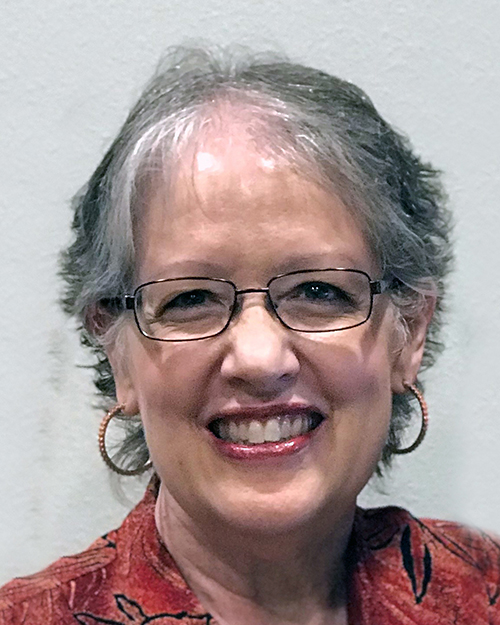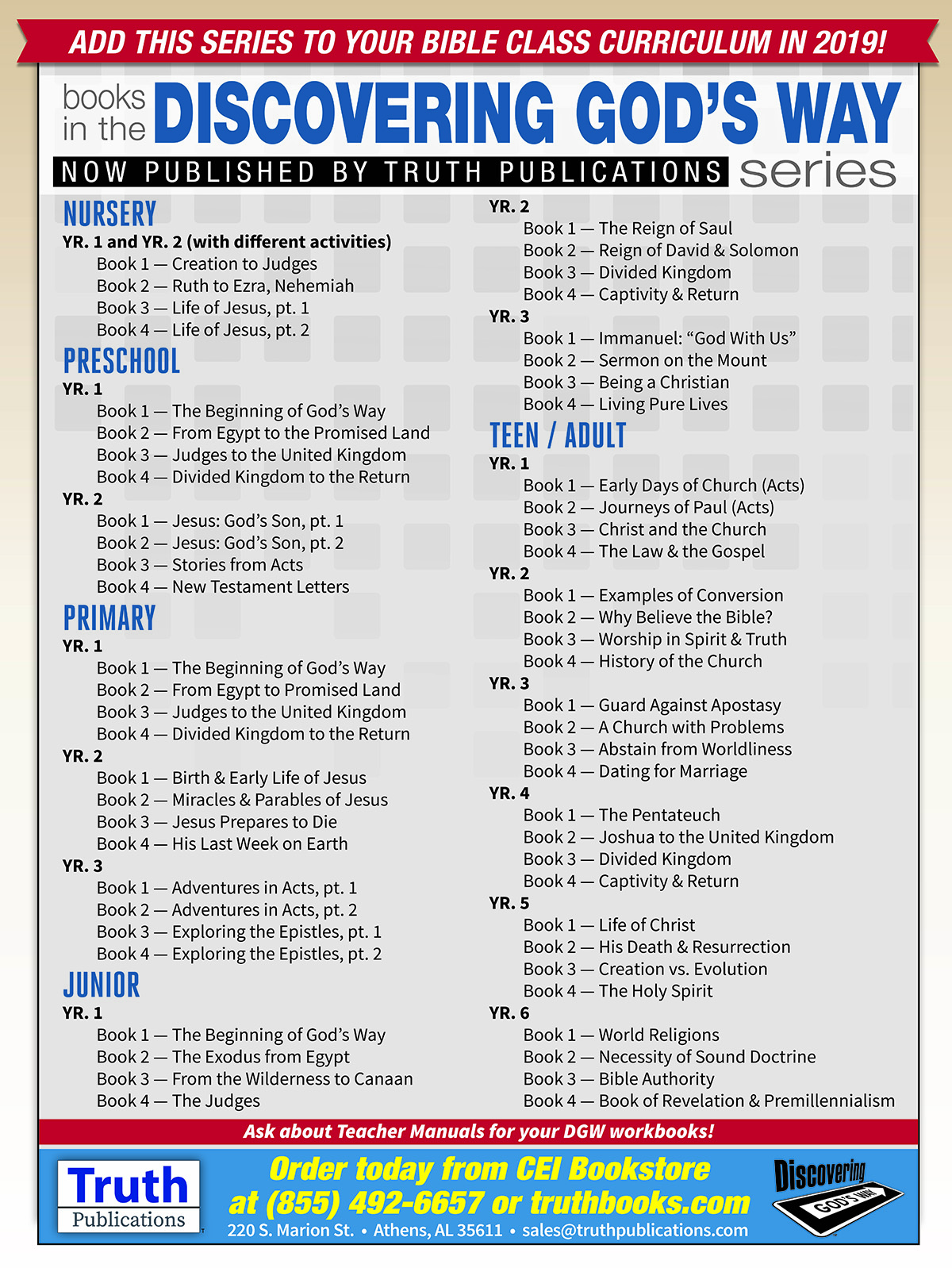

by Aleta Samford
Synopsis: The most important lesson in life is knowing who God is and what He has done. Effective teachers will emphasize this to their students.
In this article, I am asking whether we find the Law of the Lesson, which states "The truth to be taught must be learned through truth already known," in the word of God.
We have looked at two aspects of the law: 1) a lifetime of laying a solid foundation upon what is already known, and 2) each lesson in class as we proceed from what the students know to what they don't know. This article will address the first aspect.
To visualize this principle, I've been using a stairway because it shows the step-by-step progress of learning. Regarding the salvation of our souls, we often use the phrase steps of salvation. While not a biblical expression, it effectively describes the process by which God invites us to enter through His word.
In reference to the sample scenario of November's article, God's word first asks, "What happened?" not, "What does the lesson mean?" God doesn't expect or demand that we become obedient in baptism, then embark on a faithful life, until certain truths are discovered. In other words, He starts where we are with what happened.
If we are sincere, in hearing, we will relate the facts of the mighty deeds of our Father and His glorious plan for our salvation through Jesus Christ to one another and come to certain conclusions. Next, we will personalize those facts, believing what we have read. Belief will lead to repentance as we desire to become more like our Savior, and then to confession of the name of the One who died to make our salvation possible. The next step, of course, finds us obeying in baptism. Why would we not? Understanding, obedience, and faithfulness are natural responses when a proper foundation is laid.
Scripture also shows us the uselessness, or danger, of placing the learner on the top step before being ready. What happens when we don't begin with who God is, what He has done, and other basic truths? The apostle Paul faced this dilemma with the Athenians on Mar's Hill: "For all the Athenians and the foreigners who were there spent their time in nothing else but either to tell or to hear some new thing" (Acts 17:21). They are reminiscent of the 5th-grade philosophy class our son faced (June 2018 issue). They did not know who God was (vv. 22-23) and most certainly did not include Him in their decisions.
The Athenians were spending their time on the top step, precariously figuring things out on their own. If Paul had begun with baptism, they would, as we say, have just gotten wet. God was not the foundation for their knowledge; He wasn't their primary active force (June and August articles). Paul might as well have been facing a classroom of infants in that regard.
Paul proclaimed to them their first step: who God was and what He had done. Only then did he proceed to give them a purpose for living; only then did he tell them to repent.
"The fear of the Lord is the beginning of knowledge" (Prov. 1:7). When we recognize God's authority in all areas of life, everything falls into its proper place. Life makes sense, and the world has meaning. We'll avoid becoming our own active force, our own authority and instead be obedient… naturally. We understand what it means to be a child of the Heavenly Father. This is the life-long aspect of the Law of the Lesson.
Psalms 78 is a summary of the history of God and the Israelites and a commentary of what all people should be doing with that history. We must teach our children the source of our faith and help them begin to build their own, one step at a time.
Author Bio: Aleta is the wife of Gene Samford who preaches for the church that meets in Kemp, TX. She has taught Bible classes for 44 years and, to help other women join the ranks, presents a series of lessons based on God's word, The Seven Laws of Teaching, and her own experiences. She may be reached at aletas10@sbcglobal.net.

